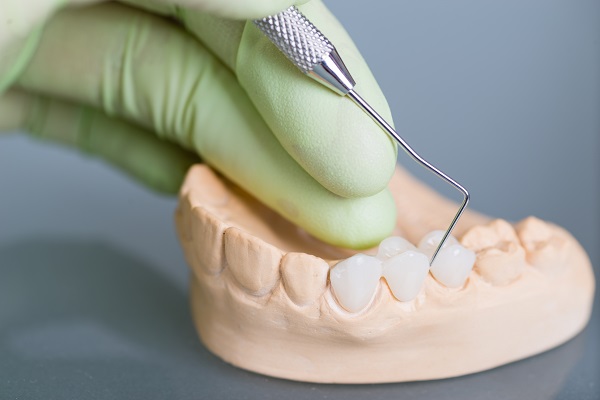
Dental Restoration Options: Dental Crowns
Considering dental crowns for a restoration? There are a number of dental restorations that can be provided by a general dentist, however, one of the most popular ones is dental crowns. Dental crowns offer individuals strong and reliable restorations that tend to last upwards of 10 years. They provide many benefits, including durability and discreteness. Additionally, there are different options, which cannot be said about other dental restorations.
Dental crowns for restoring decayed or damaged teeth
Below is an overview of dental crowns, including how they are used to restore teeth that are in bad shape. When looking into different dental restorations, it can be helpful to review and carefully consider the following information.
What are dental crowns and how do they work?
Dental crowns are caps that completely cover a tooth. Typically, they are used for molars or teeth that are responsible for chewing and grinding food.
General dentists recommend dental crowns when an individual has a decayed tooth that cannot be repaired through a filling. The dental crown may be used to restore the tooth on its own or after a root canal procedure. Additionally, when an injury occurs resulting in a crack or a chip, a dental crown may be administered to cover the damaged tooth. Dental crowns can also be used in conjunction with dental implants as the final prosthetic, which acts as the replacement for the actual tooth.
After taking impressions of the damaged or decayed tooth, the general dentist will send the molds off to a dental lab where the dental crown will be custom-made. The placement procedure is relatively simple and painless.
Options
Modern-day dentistry has allowed for the evolution of multiple kinds of dental crowns. Traditionally, they were only offered in metal or gold materials, both of which are still available today. Metal and gold dental crowns provide immense durability and reliability, and they rarely have to be replaced. However, one disadvantage to them is that they can draw attention to the mouth due to their color, which is why ceramic and composite dental crowns were introduced to dentistry.
Ceramic dental crowns are extremely durable, but they are also white in color, which allows for discreteness. Composite dental crowns, on the other hand, are not as reliable, but they are more affordable and can be color-matched to the surrounding teeth.
Benefits
There are many benefits that come with dental crowns when used as a dental restoration. Outlined below are a few of them.
- Strong and durable
- Many different options
- Long-lasting
- Hearty to wear and tear
- Easily repairable
- Custom-made
- Ceramic and composite resin crowns are color-matched to the surrounding teeth, which makes them unnoticeable
In comparison to other dental restorations
Dental crowns are one of the most common types of dental restorations offered by general dentists. They are also one of the strongest and most durable restoration options, as they completely cover and cap a tooth, regardless of the size or shape. Traditional dental crowns are custom made in a dental lab, while other restorations are typically done directly right in-office. This helps ensure a perfect fit, which can, in turn, result in a longer-lasting restoration.
Learn more about dental crowns
When considering dental crowns for restoration, it is best to start with a consultation from a general dentist. Reach out today to learn more or to get started.
Request an appointment or call Dr. Morsy Dental Services at (951) 686-7420 for an appointment in our Riverside office.
Check out what others are saying about our services on Google.



